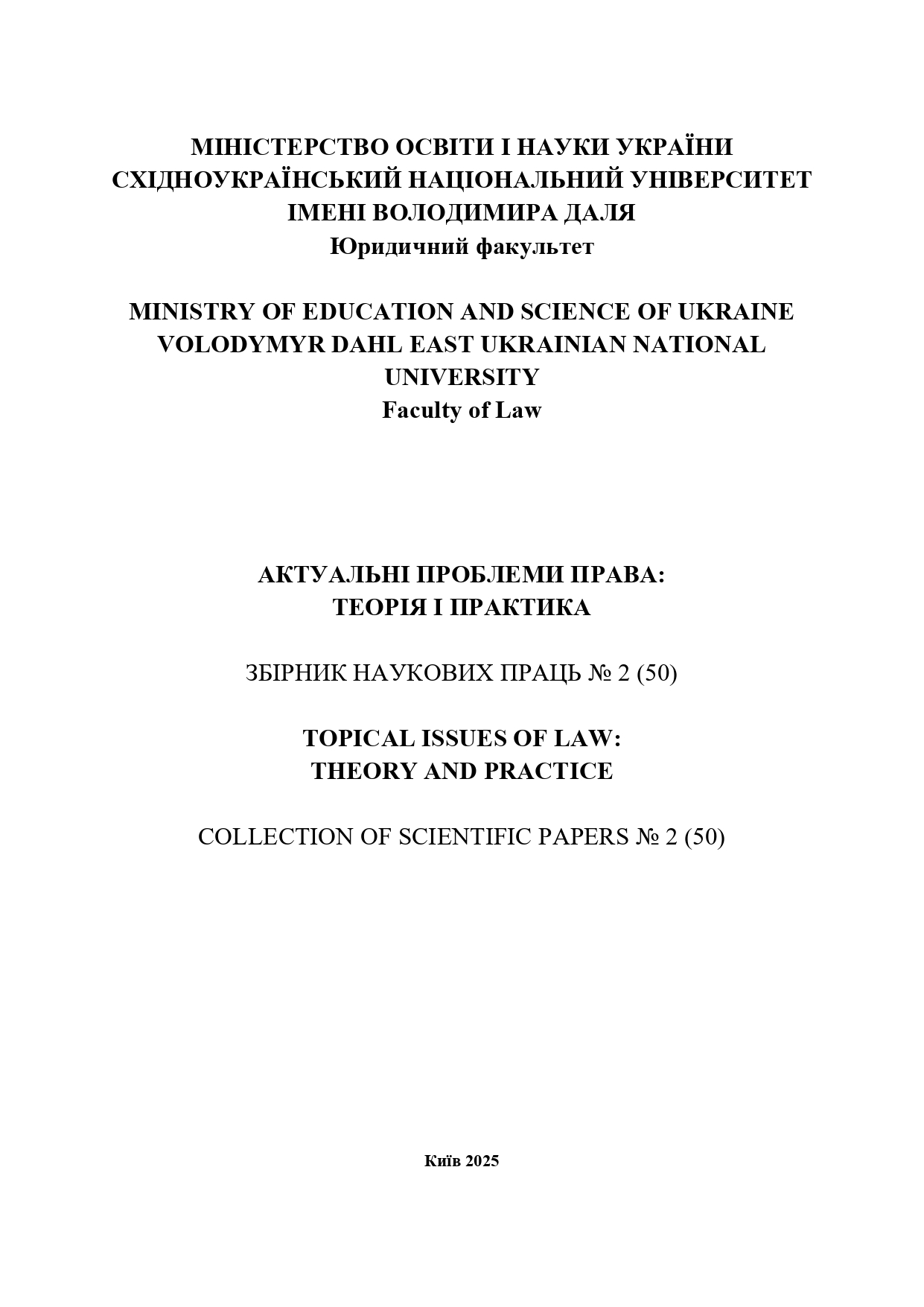INSTITUTIONAL SYSTEM FOR THE PROTECTION OF THE RIGHT TO WORK: INTERNATIONAL EXPERIENCE, CONSTITUTIONAL PRINCIPLES AND PRACTICAL IMPLEMENTATION
DOI:
https://doi.org/10.33216/2218-5461/2025-50-2-72-84Abstract
The right to work is one of the basic socioeconomic
human rights enshrined in the constitutions
of most modern states. Effective protection of this right
requires the creation of a comprehensive institutional
system that should ensure not only the declarative
proclamation of labor rights, but also their real
guarantee through a set of legal, organizational and
procedural mechanisms.
The institutional system of protection of the right
to work is a multi-level structure that includes
constitutional foundations, specialized labor
legislation, the judicial system, administrative bodies
and alternative methods of resolving labor disputes.
The theoretical justification of this system is based on
the principles of constitutionalism, the concept of a
legal state and the doctrine of social rights, which
determines methodological approaches to analyzing
the effectiveness of institutional mechanisms.
The constitutional theory of labor rights
protection is based on the recognition of labor as the
basis of human and society's life, which necessitates
the creation of state guarantees of labor rights of
citizens. The constitutional enshrining of the right to
work implies not only freedom of choice of profession
and type of activity, but also the obligation of the state
to provide conditions for the implementation of this
right, including protection from unemployment, the
creation of fair working conditions and social
protection of employees.
The practical implementation of the institutional
system of labor rights protection faces a number of
challenges associated with the transformation of the
modern labor market, the development of nonstandard
forms of employment, the digitalization of
labor relations and the globalization of the economy.
These processes require the adaptation of existing
institutional mechanisms and the creation of new
instruments for the protection of labor rights that can
function effectively in changing socio-economic
conditions.
An analysis of foreign experience indicates a
variety of approaches to building institutional systems
for the protection of labor rights, which is due to
differences in legal traditions, economic models and
social systems. Comparative legal analysis allows
identifying the most effective practices and
mechanisms that can be adapted to national
conditions, taking into account the specifics of the
legal system and the socio-economic development of
the country.
Improving the institutional system for protecting
the right to work requires a comprehensive approach,
including modernizing the legal framework,
strengthening institutional mechanisms, increasing
the efficiency of law enforcement practice, and
developing alternative means of protecting labor
rights. Particular attention should be paid to the creation of preventive protection mechanisms, the development of social partnership, and the formation of a culture of respect for labor rights in society, which will contribute to a more effective implementation of constitutional principles in the field of labor relations.
Keywords: right to work, institutional system of protection, constitutional theory, labor rights, legal guarantees, socio-economic rights, labor legislation, judicial protection, administrative mechanisms, alternative dispute resolution methods, rule of law, social partnership, labor relations, state employment guarantees, unemployment protection, working conditions.

